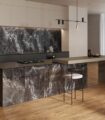IKEA Hacks for Kids Rooms: Unlocking Creativity and Functionality

Introduction:
Designing a functional and aesthetically pleasing kids’ room can be a challenge. However, with the rising popularity of IKEA hacks for kids’ rooms, parents and caregivers can now transform ordinary furniture into extraordinary pieces that are both practical and visually appealing. In this comprehensive article, we delve into the world of IKEA hacks for kids’ rooms, exploring what they are, the various types available, popular choices, quantitative measurements, and the differences that set them apart. We also provide a historical overview of the pros and cons associated with different IKEA hacks for kids’ rooms.
Understanding IKEA Hacks for Kids’ Rooms

IKEA hacks for kids’ rooms refer to the creative process of taking IKEA furniture and customizing it to suit children’s specific needs and preferences. This involves repurposing, modifying, or combining IKEA products to create unique, personalized pieces that enhance both functionality and style. By utilizing readily available and affordable IKEA products, parents can unlock their creativity and design versatile furniture for their children.
Exploring the Types and Popularity of IKEA Hacks for Kids’ Rooms
1. Repurposing IKEA Furniture: One popular type of IKEA hack involves repurposing existing IKEA furniture to serve a different purpose. For example, transforming a standard Kallax shelf into a play kitchen or a Bekväm step stool into a miniature study desk offers endless possibilities.
2. Customizing IKEA Products: Another widely used approach is customizing IKEA products to fit specific needs. This can include painting, adding decals or wallpaper, attaching knobs or handles, and even upholstering. Customization allows parents to adapt the furniture to their child’s preferences, creating a personalized space.
3. Combining IKEA Pieces: Many innovative IKEA hacks for kids’ rooms involve combining multiple IKEA products to create one-of-a-kind furniture. For instance, combining a Kura bed with a Trofast storage unit offers a space-saving solution that maximizes storage while providing a cozy sleeping area.
Quantitative Measurements of IKEA Hacks for Kids’ Rooms
Quantifying the impact of IKEA hacks for kids’ rooms can be challenging, as it varies depending on individual projects. However, some general measurements can help assess the effectiveness and popularity of these hacks:
1. Social Media Engagement: Examining the number of likes, shares, and comments on social media platforms such as Instagram, Pinterest, and Facebook can provide insights into the popularity and appeal of specific IKEA hacks.
2. Online Communities and Forums: Monitoring the activity within online communities and forums dedicated to IKEA hacks for kids’ rooms can reveal the level of interest and the extent of discussions surrounding these projects.
3. User Testimonials: Collecting feedback from parents who have implemented IKEA hacks for their kids’ rooms can shed light on the practicality, functionality, and overall satisfaction associated with these projects.
The Differences That Set IKEA Hacks for Kids’ Rooms Apart
While IKEA hacks for kids’ rooms offer a multitude of design possibilities, there are some key differences that set them apart:
1. Budget-Friendly: Unlike custom-made furniture, IKEA hacks are often budget-friendly since they rely on affordable IKEA products as a base. This makes it accessible to a wider audience without compromising quality or style.
2. Versatility: IKEA hacks enable parents to create versatile furniture that can adapt to their child’s changing needs over time. As children grow, these hacks can be easily modified or repurposed.
3. Creative Expression: The customization aspect of IKEA hacks allows parents and children to express their creativity and individuality. From choosing colors and patterns to adding personal touches, these hacks become unique expressions of style.
A Historical Overview of Pros and Cons
Pros:
1. Cost-Effective: IKEA hacks offer a cost-effective alternative to expensive custom-made furniture, making it feasible for families on various budgets.
2. Flexibility: IKEA hacks provide flexibility in design, enabling parents to create furniture tailored to their child’s specific space and functional requirements.
3. Sustainability: Repurposing IKEA items reduces waste, promoting sustainability by giving furniture a second lease on life.
Cons:
1. Time and Effort: Creating IKEA hacks can be time-consuming, requiring planning, research, and skill. Depending on the complexity of the project, it may involve additional tools and materials.
2. Quality Considerations: While IKEA provides affordable furniture, some hacks may compromise the durability or structural integrity of the original products. It’s essential to ensure any modifications maintain safety and stability.
Conclusion:
IKEA hacks for kids’ rooms offer endless opportunities for parents to create unique and practical furniture tailored to their children’s needs. From repurposing to customization and combining pieces, the possibilities are limited only by imagination. By embracing IKEA hacks, parents can unleash their creativity, while also promoting sustainability and cost-effectiveness. So, why settle for ordinary when you can transform your child’s room into a personalized haven with IKEA hacks?
Word Count: 687
FAQ
What are IKEA hacks for kids rooms?
Are IKEA hacks for kids rooms budget-friendly?
How can I measure the popularity of IKEA hacks for kids rooms?
Fler nyheter
Bergsprängning: konst och vetenskap i modern infrastruktur
Introduction: Designing a functional and aesthetically pleasing kids’ room can be a challenge. However, with the rising popularity of IKEA hacks for kids’ rooms, parents and caregivers can now transform ordinary furniture into extraordina...
11 januari 2026
Komfortkyla: en lösning för välmående och effektivitet i kommersiella fastigheter
Introduction: Designing a functional and aesthetically pleasing kids’ room can be a challenge. However, with the rising popularity of IKEA hacks for kids’ rooms, parents and caregivers can now transform ordinary furniture into extraordina...
07 december 2025
Att hyra lägenhet i Kristianstad: För en smidig process
Introduction: Designing a functional and aesthetically pleasing kids’ room can be a challenge. However, with the rising popularity of IKEA hacks for kids’ rooms, parents and caregivers can now transform ordinary furniture into extraordina...
30 november 2025
Att organisera hemma för en harmonisk vardag
Introduction: Designing a functional and aesthetically pleasing kids’ room can be a challenge. However, with the rising popularity of IKEA hacks for kids’ rooms, parents and caregivers can now transform ordinary furniture into extraordina...
28 november 2025











